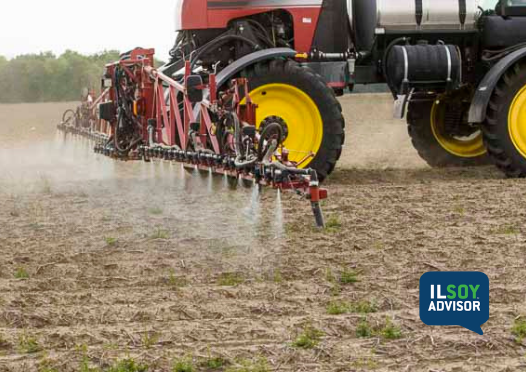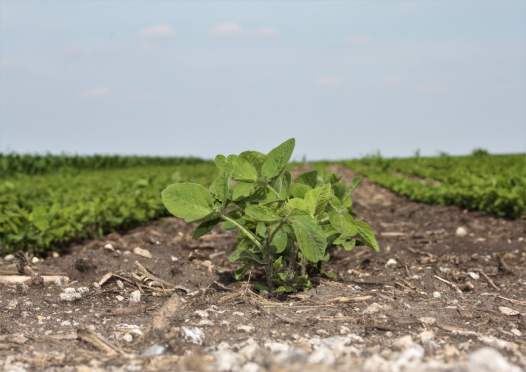Spring is in the air! The grass is greening up, the songbirds are back serenading us, each day is getting longer, the daily temperature is sort of warming up, and snow is changing to rain (for the most part). But that is the problem, isn’t it? Temps are staying lower than average, and the precipitation does not seem to want to stay away for longer than a 48-hour stretch, at best. In Champaign, the average temperature for the month of April so... Read More →
ILSOYADVISOR POST
Navigating the New Herbicide Market
September 20, 2018
The 2019 season will provide soybean growers with some recently approved trait options as well as the potential for amendments to their current system. This topic has been a hot button at many meetings, coffee shops and roadside conversations. One thing is for sure, having options moving forward to combat weed resistance is a good thing.
We already have the dicamba-tolerant Xtend® trait. The dicamba technology is a tool enabling growers to combat resistant weeds. However, the volatility of the product created headaches in 2016 and 2017.
Up for review are the labels for the three Xtend dicamba chemistries. Xtendamax, Fexapan® and Engenia® each received 2-year labels. Those original labels expire this fall. According to Kevin Johnson at Illinois Farm Chemical Association (IFCA), last year Illinois had 246 registered dicamba complaints. In 2018 there were 328 of the 517 registered misuse complaints associated with dicamba. Several other surrounding states have seen an increase in registered misuse complaints as well.
Johnson agreed that one of 3 things can happen at this point:
- The label is renewed with no changes,
- The label is renewed with amendments to application dates, growth stages, restrictions to applications when next to sensitive crops or a combination of those or
- The label gets no renewal.
Johnson stated that the EPA wanted to have a decision made in a timely fashion, but due to recent litigation cases from the 9th Circuit in California, they have unfortunately had to redirect their efforts to the glyphosate ruling and the potential ban on Lorsban® as well. He remains optimistic that a decision could come soon, possibly by early November. If significant changes are made, it will leave growers evaluating at what level they can continue using dicamba or if they will need to make a platform change.
Enlist E3™ soybeans encountered a setback in early 2018 and international approvals have been very slow. This platform offers growers the ability to apply 2,4-D, Roundup® or Liberty®. The choline version of 2,4-D boasts significantly lower volatility and higher crop safety than dicamba. This also stacks multiple modes of actions in the war against resistant weeds. Indications at this point toward approval sometime in early 2019, unfortunately well after most seed decisions have been made. Performance will be evaluated in select plots across the Midwest.
The trait that gained full approval was the Balance® GT/27 soybeans. Here growers have three traits—Liberty trait alongside glyphosate and HPPD tolerance as a pre-emergence option. At this time the label for the HPPD chemistry has not been approved, but the germ plasm is cleared for use. Joe Merschman of Merschman Seeds is hoping that a label will be authorized for spring applications. Yield data looks positive and very competitive to current varieties. Supply for the 2019 growing season looks very good for first year launch. Most suppliers will agree that they will sell out, even with great yields at harvest of seed stocks.
Regardless of what platform a grower will use or could utilize, it’s great to have options when combating weed resistance.





Comments
Add new comment